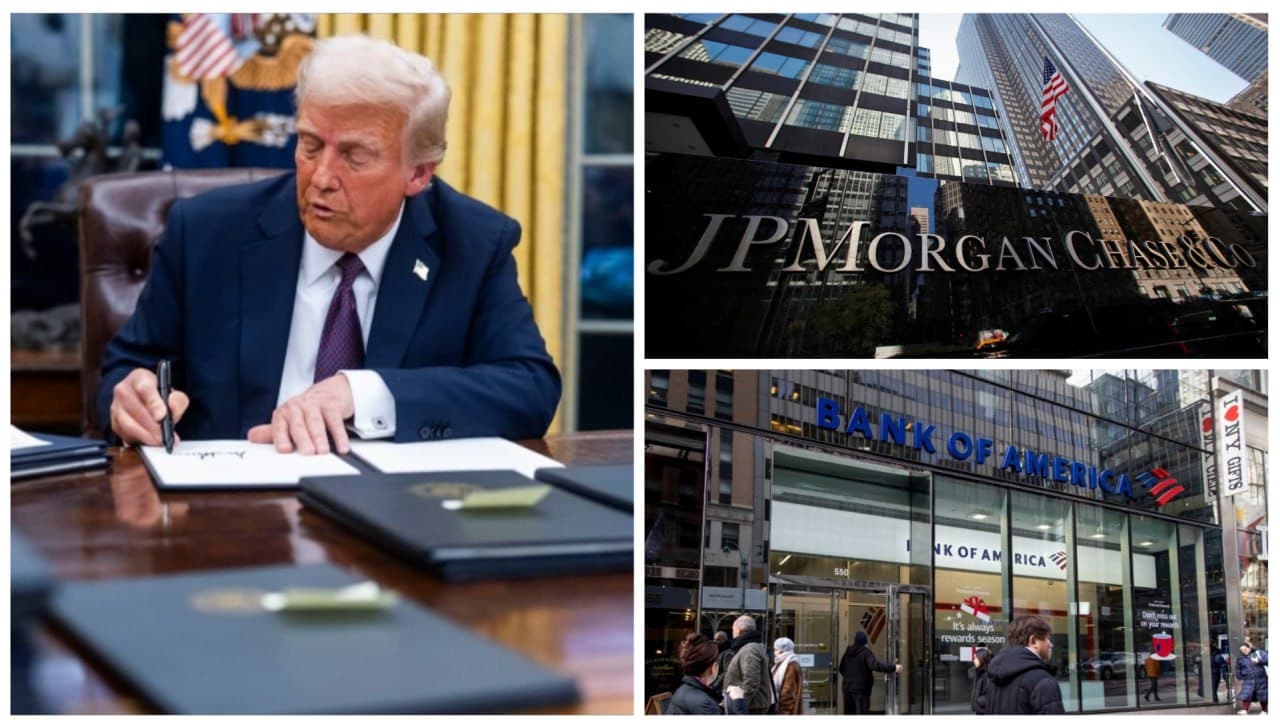Trump to Sign Decree Penalizing Banks for Denying Services Based on Politics
In a significant move that could reshape banking regulations, President Donald Trump is preparing to sign a decree aimed at penalizing financial institutions that refuse services for political reasons. This decision comes on the heels of Trump"s claims that major banks, specifically JPMorgan Chase and Bank of America, denied him the opportunity to open an account to deposit over a billion dollars, citing political bias as the underlying cause.
Background & Context
The forthcoming decree highlights an ongoing tension between financial institutions and conservative figures, as Trump has consistently argued that banks discriminate against individuals based on their political affiliations. The administration"s proposed measure will require regulators to investigate whether financial institutions have violated the Equal Credit Opportunity Act, which prohibits discrimination in lending practices. This move could mark a pivotal shift in how banks operate, particularly regarding their treatment of politically active clients.
Historically, the intersection of finance and politics has been fraught with challenges. Financial institutions have often faced scrutiny over their lending practices, especially in cases where their decisions appear to be influenced by political considerations. Trump"s latest initiative is positioned as a response to what he perceives as systemic bias against conservatives, a sentiment that resonates with many of his supporters.
Key Developments
During a recent interview, Trump revealed that his attempts to deposit a substantial sum into major banking institutions were thwarted. "I wanted to deposit over a billion, but they refused to open an account," he stated, underscoring his belief that political discrimination is prevalent in the banking sector. This assertion has fueled the administration"s drive to impose penalties on banks that are found to discriminate based on political affiliations.
According to sources, the decree will not only mandate investigations into these practices but also establish penalties for banks that are confirmed to have engaged in discriminatory actions. By enforcing such measures, the Trump administration aims to protect individuals from what it considers politically motivated financial exclusion.
Broader Impact
The implications of this decree could reverberate throughout the financial industry, prompting banks to reevaluate their policies regarding client acceptance and service provision. Experts suggest that while the intention behind the decree is to promote equality in financial services, it may also lead to unintended consequences, such as increased regulatory burdens for banks and potential legal challenges over the definition of "political reasons."
Moreover, the decree raises questions about the balance between free market practices and regulatory oversight. Critics argue that imposing penalties could lead to a chilling effect, dissuading banks from engaging with politically active clients altogether, regardless of their affiliations. The potential for increased litigation and regulatory scrutiny may also strain relationships between financial institutions and their clients.
What"s Next
As the Trump administration prepares to roll out this decree, attention will shift to how financial regulators will implement these new requirements. Banks will likely need to adjust their compliance frameworks to meet the demands of the decree, creating a new landscape for lending practices. In addition, the financial sector will be watching closely for any legal challenges that may arise as a result of these changes.
Furthermore, this development may set the stage for broader discussions about the role of politics in financial services, as various stakeholders weigh in on the implications of such a policy. As previously reported, the intersection of politics and finance has been a contentious issue, with recent developments in related areas, such as the Clintons subpoenaed in Epstein investigation, further illustrating the complexities involved.
In the coming weeks, as Trump signs the decree and regulatory frameworks take shape, the financial sector, political analysts, and the public will be keenly observing how this policy unfolds and its potential impact on the future of banking in America.



![[Video] Gunfire between Iraqi security forces and Sadr militias in Baghdad](/_next/image?url=%2Fapi%2Fimage%2Fthumbnails%2Fthumbnail-1768343508874-4redb-thumbnail.jpg&w=3840&q=75)
